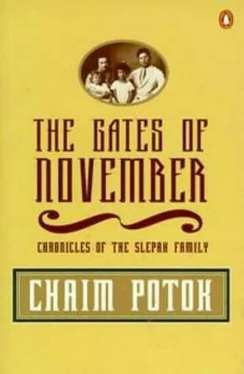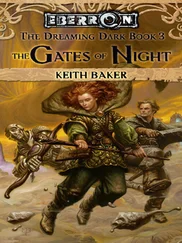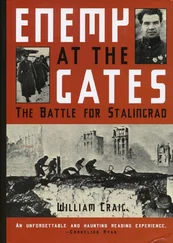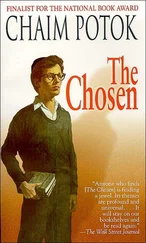“You are Chaim Potok?” Volodya Slepak said, grasping my hand with both of his and pumping it. He got to his feet and I stood as well, and he embraced me. I felt entirely swallowed up by his hard, muscular frame and his ebullience, by the strength I sensed in his arms. And I experienced no small astonishment of my own at that moment and a sensation of profound pleasure that my work had somehow reached and touched this admirable man.
He boomed to those who had just entered the room, “This is the writer Chaim Potok!” and his voice rang in my ears.
The brother and sister-in-law nodded courteously, with no sign of recognition. The young man responded with a vacant stare. Adena hung up the telephone and joined us.
“What a surprise!” Volodya said. “We must make a toast!”
He said something in Russian, reached for the bottle of vodka we had brought, and began to open it, while Masha’s sister-in-law hurried into the kitchen and returned with a tray of small glasses. Volodya poured drinks. We raised our glasses.
“To our friends from Philadelphia,” he said. “And to freedom.”
“To my first meeting with people I feel I’ve known for a long time,” I said.
“To new friends,” said Adena.
Masha Slepak held her glass, looking intently at Adena and at me. There was something about the way she was watching us, as if her eyes were categorizing, filing, storing things away. Her brother and sister-in-law, who apparently knew no more English than Masha, stood with their drinks, bewildered and somewhat apprehensive over Volodya’s exuberance. And the nephew seemed utterly confounded by the glass of vodka thrust into his hand.
The seven of us emptied our glasses to seal our moment of meeting, and returned them to the tray. The brother and sister-in-law returned to the kitchen, and the nephew started down the hallway to his room. Volodya Slepak watched him go and waited until he had closed the door to the room. “There is a big problem with him,” he said.
“What’s that?” I asked.
“He is of an age when he can be taken into the army. If they take him, Masha’s brother and sister-in-law will not leave even if they are given exit visas.”
“Have they applied for visas?”
“Oh, yes. And they have been refused. They will not apply again if their son is in the army.” “I understand.”
“And later the authorities will use his having been in the army as a reason not to give him an exit visa. They will say because he was a soldier, he knows state secrets.” He was silent a moment. “It is a big problem. They might send him to the war in Afghanistan.” He paused. “Maybe you or your wife know an American girl he might marry.”
His words were an appeal to save a life.
Adena and I exchanged glances and shook our heads.
The subject of this doleful solicitation was called back into the room by his mother a few minutes later, and we took our places around the table. It was Shabbat, but there were no candles, or wine, or braided bread. A consuming desolation lay upon the room. All sat very still looking down at the table, and I sensed that they were waiting for me to do something.
I poured some vodka into my water glass, indicated that they should do the same with their glasses, and rose to my feet. They stood. I chanted the Shabbat Kiddush blessing-normally performed with sacramental wine-over the vodka. Even in Korea, in the worst of times, there had always been wine for Kiddush. I chanted slowly, glancing at the faces of the Russians. No embarrassment there, and no apparent discomfort. Solemn and respectful. I finished the Kiddush, and we drank the vodka. Then, over a loaf of dark bread, I recited the blessing for bread and sliced the loaf and passed it around. We sat down.
The aura of sanctity given the table by the blessings left everyone wordless for a moment. A Shabbat meal was clearly not a commonplace occurrence in the lives of these Soviet Jews. The dinner, I remember, consisted of a salad of cooked beets, potatoes and onions, and steamed white fish with cabbage and carrots. And small poppyseed cinnamon cookies. And tea. And much conversation.
Adena and I talked about the origins of our families in Russia. Escape had been the theme of their lives: my great-grandfather and his flight to Poland to avoid conscription and twenty-five years of army service under Nicholas I; Adena’s father and his flight from Nicholas II to elude arrest for participating in Zionist activities. Breaking out, bribing ones way across closed borders, getting as far as possible from that oppressive land-that was the legacy they left us. We had come to the Soviet Union, Adena said, to meet with dissidents, to express solidarity with them, to tell them they were not forgotten. All the time we talked, Volodya quietly translated our words to Masha and the others.
A warm intimacy settled upon the room, a quality of familiarity and closeness brought on by a shared table. The conversation with Volodya meandered into tributaries: Stalin, the Second World War, Cold War politics, the present Soviet regime, the dissidents, and the petitions, letters, headlines, demonstrations. The talk grew animated, and even Masha began to join in, expressing herself in halting Yiddish and English. From time to time her brother and sister-in-law ventured a few words. Only the young man sat in silence, lost, it seemed to me, in a miasma of sadness.
Slipping from one subject to another, we arrived somehow at the matter of Volodya’s health, and Masha suddenly turned to me and, pointing to my midsection, said with a sober look, “Small.” For a moment, I didn’t understand. Then she directed a finger at Volodya’s prominent paunch and said, “Not small,” and I sensed the weight of her admonishment.
Volodya’s voice, normally loud, bellowed forth in laughter. His face beamed; his eyes flashed. He patted his belly, said, “Masha wishes me to lose weight,” and laughed again.
Masha said something in Russian. Volodya translated. “Masha wishes to know how you stay so thin.”
I explained in simple English the normal and healthful way I ate. Volodya listened and translated. Masha grew increasingly absorbed. Her face grew animated; her eyes brightened. Of all things to excite her so-a modest, studied style of eating. Perhaps her husband was in ill health and needed some rules to rein in his appetite.
When I was done, Masha spoke briefly in Russian to Volodya. He rose from the table, left the room, and returned a moment later with a pad and a pencil. “Say again how you eat, and I will write it down. We will make Masha happy.”
Later we all helped clear the table, and as we moved about, a perceptible tension returned to the air. I noticed that Masha’s brother-in-law was glancing repeatedly at the kitchen clock. Finally, they all went to the telephone.
Volodya explained to us that his in-laws were about to make their fortnightly call to their daughter and son-in-law, who had a newborn child and lived in Beersheba, Israel. The call, which had been prearranged, went through with no difficulty.
Mother and father and son took turns talking into the telephone. They talked loudly, as if they had little faith in the instrument’s mysterious power and thought they had to propel their voices through the hidden wires that stretched across land and sea. Responding voices crackled from the black receiver. Volodya translated quietly. The baby was well. His name was Daniel. The daughter was very happy. She sent her love to her parents and brother and aunt and uncle. She was eagerly awaiting the day when they all would be given permission to emigrate.
Masha spoke on the telephone. Then Volodya. The call came to an end.
Masha turned away from the telephone, her face ashen, her lips tight. All the early self-restraint seemed to have drained from her. She said to Adena in hesitant and broken English, “I never again to see my children. I never to see my new grandchild in America.” Suddenly impatient with the language, she lapsed into Russian, and Volodya translated. “Our two sons received their visas to Israel years ago, and now they live in the United States. The wife of the son who lives in Philadelphia is pregnant and will soon give birth. We will never again be a family. This is our bitter lot. We are doomed to live out our lives in the Soviet Union. At least we succeeded in getting the children out. Not for a moment do we regret what we did.”
Читать дальше












